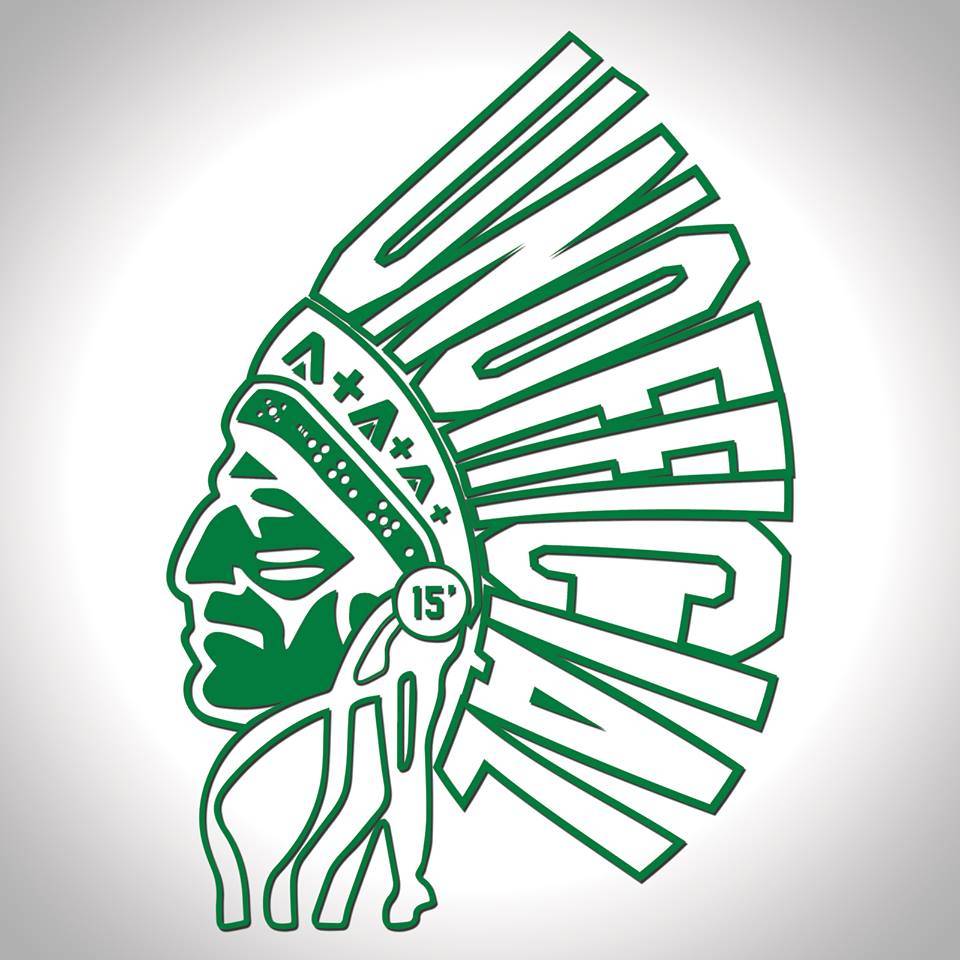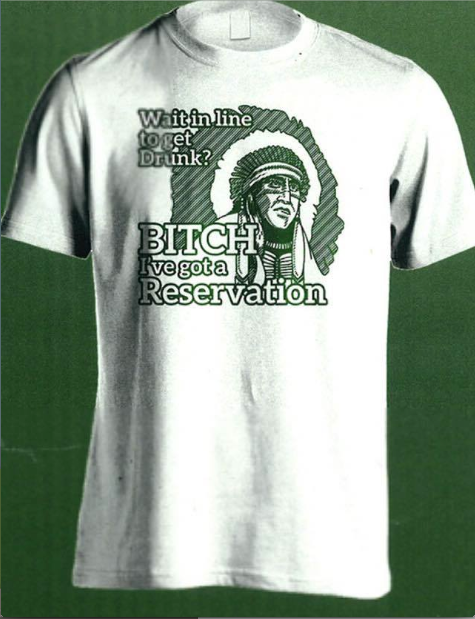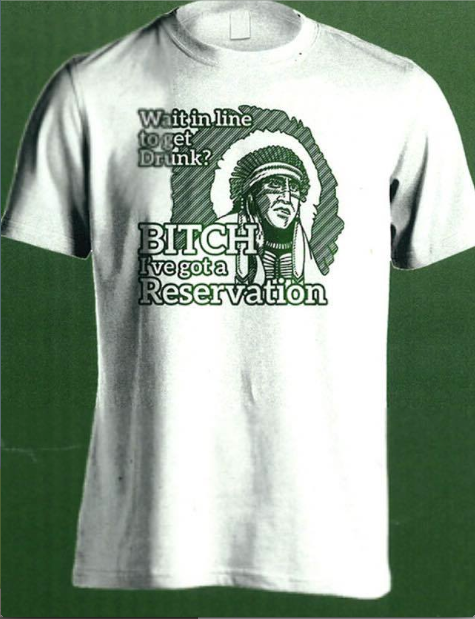
Unofficial St. Patrick’s Day is on the horizon. Before many of you Champaign-Urbana folks decide to just skip the rest of this and head to the comments section to post about DUMB STUDENTS WHO DRINK TO EXCESS IN YOUR TOWN, I’d like for us to have a pretty good discussion about a larger issue surrounding the celebratory day of debauchery.
We have an issue in this community with racism and this week it has manifested itself in the green, booze-themed t-shirts for Unofficial. These are being sold by non-students, so hold some blame for your fellow C-U residents.
Booze-themed t-shirts can be awesome. Like this Carlos Boozer Unofficial shirt. That’s probably the best Unofficial shirt I’ve seen in my eight years of being in this town.
The problem is when we have mass-produced Unofficial shirts that use Native American imagery without thinking of the cultural implications or when we blatantly mock Native American culture by advertising this:

Look, I KNOW that the shirt you just scrolled past is racist. It’s also sexist too. But it’s hard for me, a white, 20-something male to speak with any authority on this. So I turned to Kyle Mays. Mays is a 5th year History PhD student who also happens to be an African American and Saginaw Chippewa.
I saw the shirt above in a roundabout way because of Mays, and as he tells it, a Native American student saw that shirt being advertised by Evergreen Tobacco on the wall of Davenport Hall. That student brought it to the attention of the Native American House and it circulated and made its way to Mays who posted it on social media.
“I just wanted to share that with people,” Mays told me over the phone.
We talked a bit about the design and finally I managed to ask Mays what a shirt like that does to this supposedly liberal space where all students should feel comfortable.
Mays quickly refutes that all students feel comfortable by mentioning a student he had a few years ago that talked about how she felt uncomfortable identifying as Native American in class because of the ignorance of other students, especially surrounding the issues like Native American imagery or the Chief.
“It makes campus a hostile space,” he says. People wearing the designs are “ignoring the realities of native people and how they’re affected today. (The environment surrounding Unofficial) borders on dangerous. You see a shirt or design like this and want to say something but with the drinking involved it makes it hard.”
It’s no secret that conditions for Native Americans living on reservations are not good. But many don’t know how “not good.” I’m one of those people. I need to learn and be better. Mocking alcoholism, which is a serious issue amongst Native Americans, is wrong. “I can’t think of any Native Person that I know personally that alcoholism hasn’t affected,” Mays tells me.
That’s one of the cruxes of this issue. The folks that are wearing these designs are willfully ignorant in this situation. They view this t-shirt as a harmless way to celebrate a day to get hammered. Chief Illiniwek is still recognized as a symbol here, whether or not the University or NCAA actually endorses it.
Mays doesn’t see this environment changing any time soon, either.
“In the context of a University that still wants to memorialize and create a shrine of the Chief’s outfit and is consistently silent on larger political issues, no it won’t stop. This stuff is perpetuated by the University administration.”
How hard would it be for the University, in their yearly letter to tell students to be careful about drinking and to be smart about it, to add on a sentence that says wearing imagery with drunken Native Americans is not in line with the ideals of the University of Illinois? How hard would that be to do? Honestly?
That doesn’t end the ignorance, but it sure as hell might show that the administration may actually have a backbone.
What can be done to hasten the conversation? Mays thinks that a student led protest, in line with the current hashtag #NativeLivesMatter would be a good start.
That’s just window dressing though, the people that need to actually have a backbone in this situation are the screen printers themselves. They do have a moral responsibility to say no to printing racist t-shirts. That’s the right thing to do. Refuse business to someone who wants to make a mockery of an entire culture. Mays brought up a point that I hadn’t even thought of, “Would they go so far as to print a blackface t-shirt, or something else that is accepted as being racist?”
I can almost unequivocally say that they would not. And that’s really the issue here. We accept blackface and other images as racist. But for some reason we’re trailing behind accepting the use of Native American imagery as such. That has to change. Let’s start on Unofficial.








